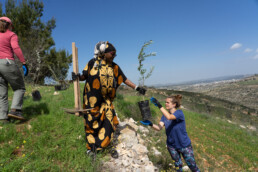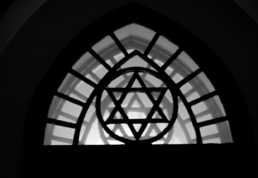The Last Palestinian Hill: Palestinian Farmers Peacefully Resist Israeli Efforts to Confiscate Land
ON A HILLTOP OUTSIDE OF THE WEST BANK CITY OF BETHLEHEM – The Rev. Terry Oliver, a Christian minister and grief counselor from outside of Seattle, Washington, knelt in front of a freshly dug hole in the rocky soil at a Palestinian family farm here called The Tent of Nations. He took a fragile olive sapling and gently placed it in the soil. As he filled the empty spaces around the roots with dirt, he intoned this prayer:
“We bless you, olive plant. In the name of the Lord, may you grow healthy, survive and provide plentiful olives, fruit for the healing of the nations, oil to gladden our face and somewhere close, wine to gladden our hearts.”
The planting was a small act of resistance and hope on the last Palestinian hilltop in this area known to Israelis as Gush Etzion. All the other hills, occupied by Israel since 1967, have been settled by Israelis seeking to claim what they see as their Biblical homeland.
The Tent of Nations is the name of the Nassar family’s farm. As part of their peaceful resistance, the organizers invite Christian pilgrims and Israelis sympathetic to their cause to work the land. One recent spring day, Daoud and Daher Nassar led a group of volunteers down the terraced hill, traversing the rocky, steep terrain of their farm. At the edge of the property, as far as the eye can see across the valley, Israeli settlements, which are illegal under international law, are perched upon neighboring crests, markedly identified by fortified fences surrounding them.
With olive trees and farming tools in hand, the volunteers continued the Nassars’ long term project: to cultivate the land and replace some of the almost 1,000 trees, including hundreds of mature olive trees, that were damaged or destroyed after they were set afire two years ago.
It remains unclear who set the Nassars’ trees on fire. Some suspect Israeli settlers motivated by religious zeal to claim what they see as the Biblical land that is their Jewish inheritance. But the Nassar brothers do not dwell on blame. They remain committed to one guiding principle, informed by their Christian beliefs and rooted in their commitment to peaceful resistance; “We refuse to be enemies,” Daoud said.
With refusal to resort to violence or resignation, the Nassars have pursued an active approach to resistance and repairing harm; what Daoud described as “acting instead of reacting.” Nevertheless, he explained, “We might act non-violently for years and years, but the outcome is also violence,” noting the impact felt on his family and farm.
He continued, “Nonviolence is not the absence of violence, as Martin Luther King said.”
Despite a catalog of attacks on his family and farm and Israeli attempts to confiscate the land, his emphasis remains on reclaiming and rebuilding the land that he says was bought by his grandfather more than 100 years ago.
On this temperate March morning, a dark, velvety rainstorm loomed in the distance as volunteers from all around the world gathered at the Tent of Nations to plant 150 olive trees, part of the farm’s tree planting campaign. They are among the continual stream of volunteers visiting the farm, providing an international presence, which the family relies on as a deterrence from Israeli state action and further attacks. This was the vision when they launched the Tent of Nations project in 2001, establishing the farm as a space for international congregation; where volunteers help to farm and cultivate the land and help see other projects come to fruition and can offer financial support.
Nassar Farm, now run by Daoud and his siblings, is situated in Area C of the West Bank — under Israeli administration — where building upon the land is illegal without permits. In the Nassars’ experience, these permits are never granted. Meanwhile, he watches as permits are issued for the neighboring Jewish settlements. The Jewish settlements also get services that he lacks, like access to running water and electricity. The Gush Etzion settlement bloc, occupied by Israel in 1967 and constructed over the decades since, spans neighboring hilltops. The bloc surrounds the small Palestinian village of Nahaleen in the valley below. Its name is Arabic, meaning “those who collect honey from bees,” an emblem of the region's agricultural history.
Daoud’s grandfather was a Palestinian farmer and observant Lutheran. On the farm today, a cave that he used as a chapel, remains carved into the ground next to the pen of the farm’s donkey, Vicki. Above the stone archway leading to the cavity is a red cross. Caves are another distinctive feature of the farm; they provide necessary shelter while permits to build housing — and other infrastructure — remain ungranted. Daoud Nassar recalls that his grandfather would often finish each day with his children reciting prayers as they watched the sun sink beneath the horizon. He dreamt that his children and the generations after them would have a physical and spiritual connection to this unforgiving land — the way he did.
As a young, aspiring grape farmer and vigneron, the grandfather bought this land, positioned just Southwest of Bethlehem. He registered it under the British Mandate in 1924 and 1925.
In 1991, Israel designated Nassar farm as state land and announced its intention to confiscate it from the family. The Nassar family took the government to court noting that it had ample documentation of ownership. Since then, they have been ensnared in a legal battle over the land. With increasing legal expenses which Daoud said totals over $200,000 and at the mercy of a court date to register the land with Israel which continues to be pushed to a later date, uncertainty looms over the farm's fate. The next court date is scheduled for May 15th, in which there will be a hearing where the last objection to the Nassar’s claims to the land’s title will be heard.
Today, in the face of this uncertainty, the Nassar family maintains a steadfast belief in this inherited dream and the vision of their forefathers. As their land continues to be threatened, they are committed to channeling their energy into creative solutions.
While the Nassars have been forced to use solar power, collect rainwater and build underground, the neighboring settlements have been mushrooming around them. As a stark contrast, just one of the settlements, Betar Illit has a population of over 60,000, with virtually unfettered access to running water and electricity.
Daoud’s story as a Palestinian family is not unique, although the hundreds of thousands of dollars of international support and volunteers like the Pastor who have enabled him to stay is.
As Oliver intones his prayer, he, his fellow pilgrims and volunteers know that only against many odds will the olive trees eventually bear fruit. Volunteers present for the recent tree planting campaign largely included international students from Hebrew University’s Christian prayer group. One student, Krystal White, organized the trip with her group as she said she felt compelled to return after her first visit in November of 2021. With instruction from the Nassar brothers, the volunteers grabbed their picks and began to dig. Charcoal earth and rocks stained by ash were still faintly visible from the assault in May of 2021.
One of those volunteers is Noa Randall, a 26-year-old environmental scientist from Cambridge Massachusetts, who spent two weeks at the farm. She wanted to see for herself what it means for Palestinians who are surrounded by settlements and face difficulty accessing their land. She said watching the Nassar family tirelessly defending their land left her speechless.
“This is an image of what resilience looks like.”
Photos:
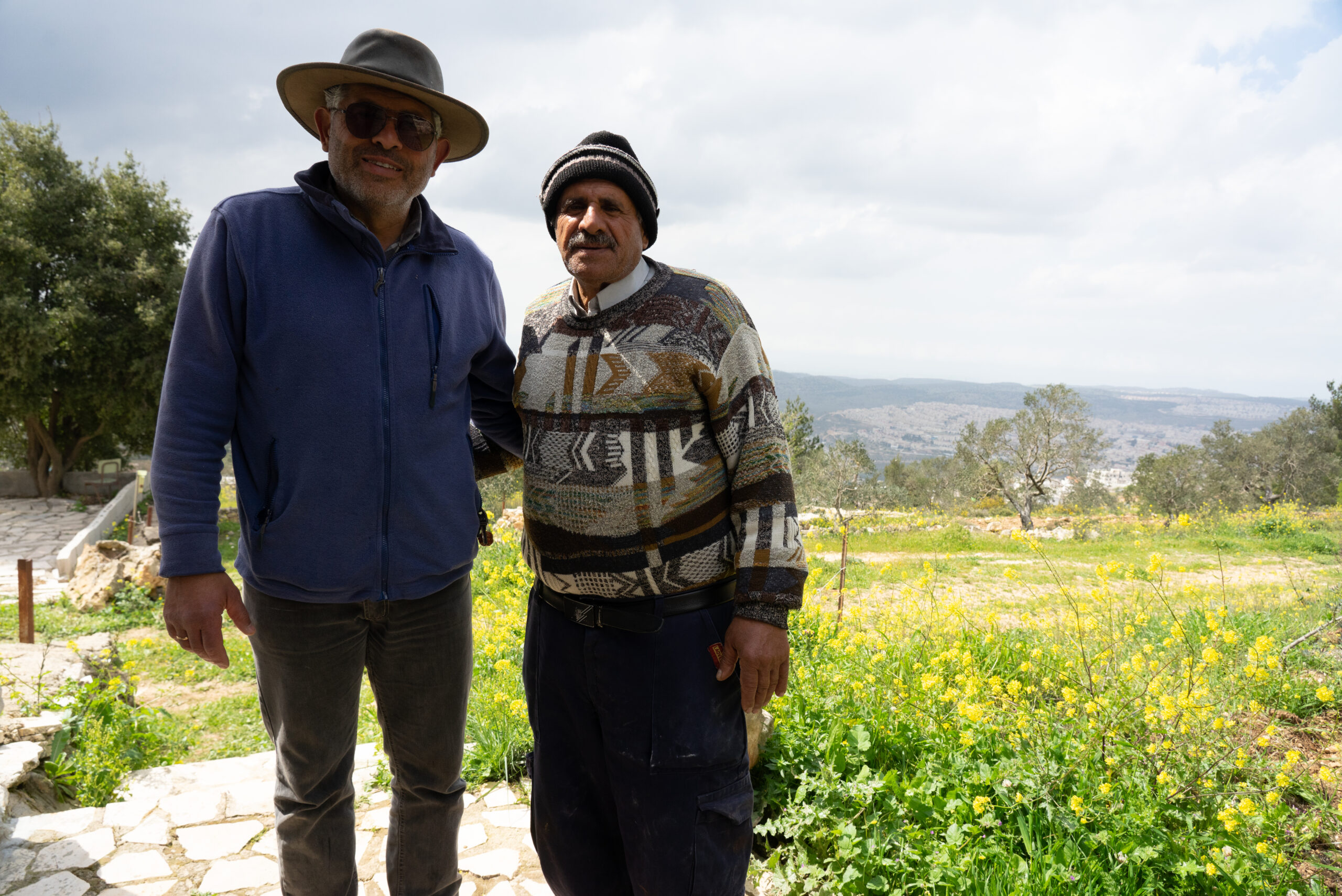
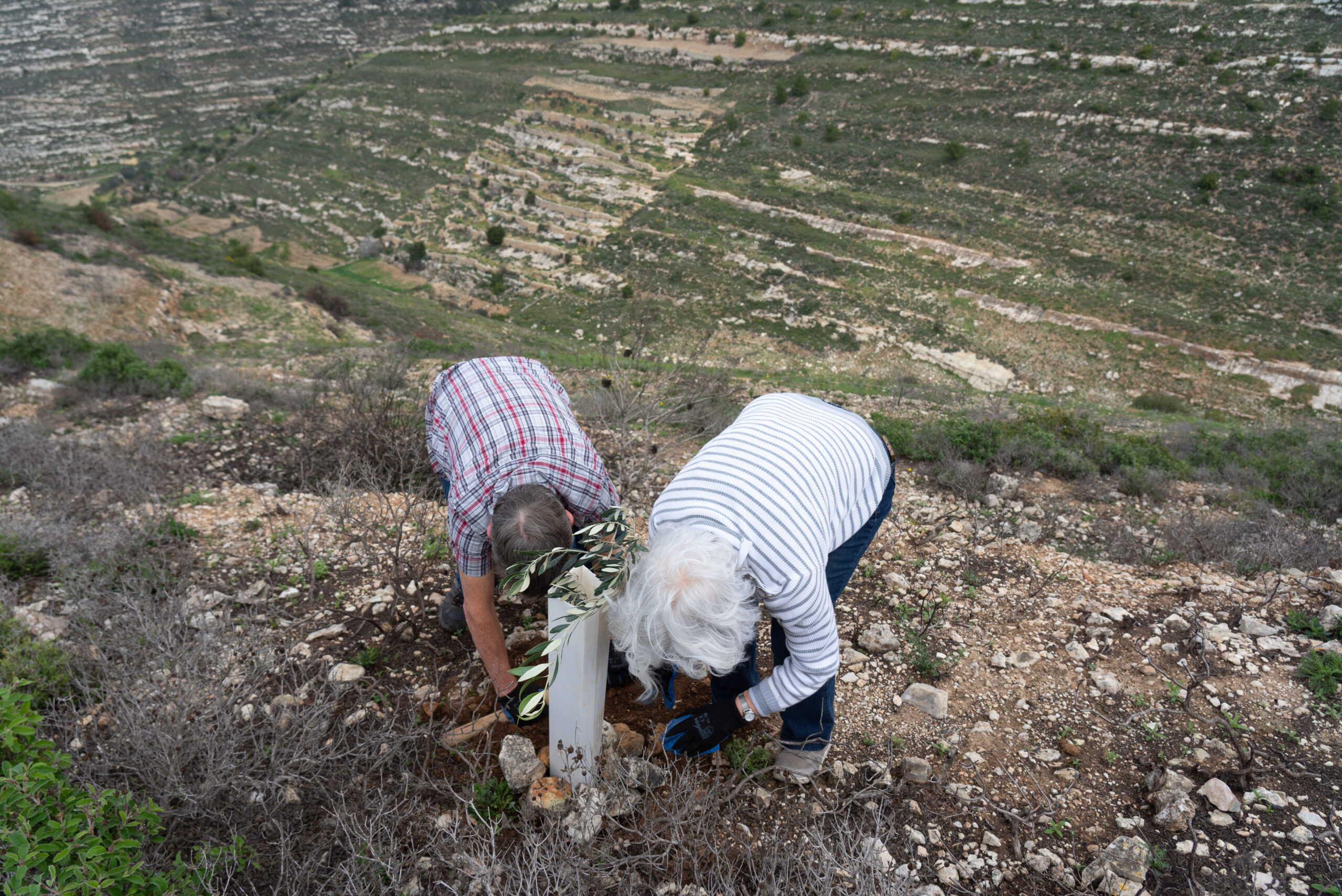
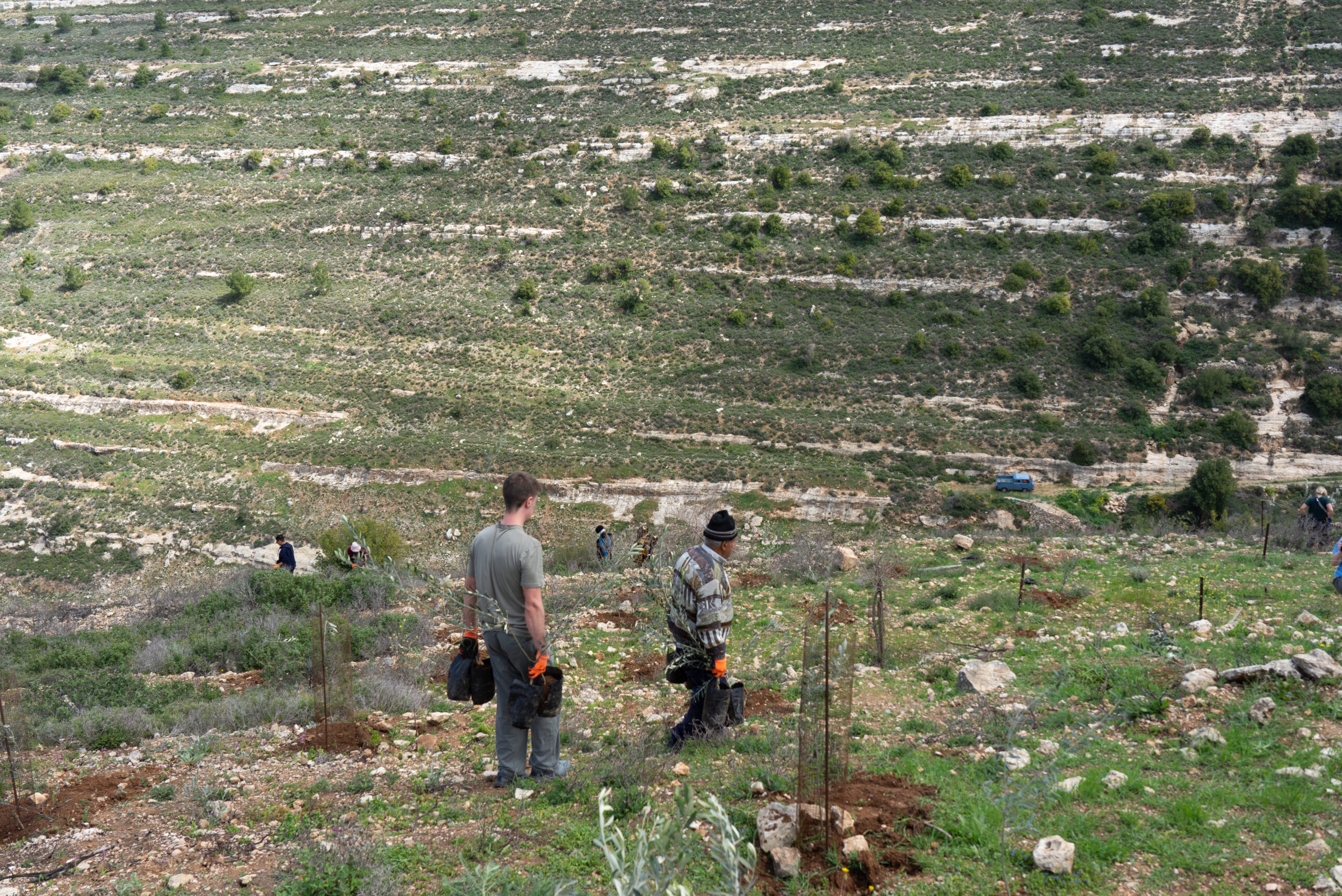
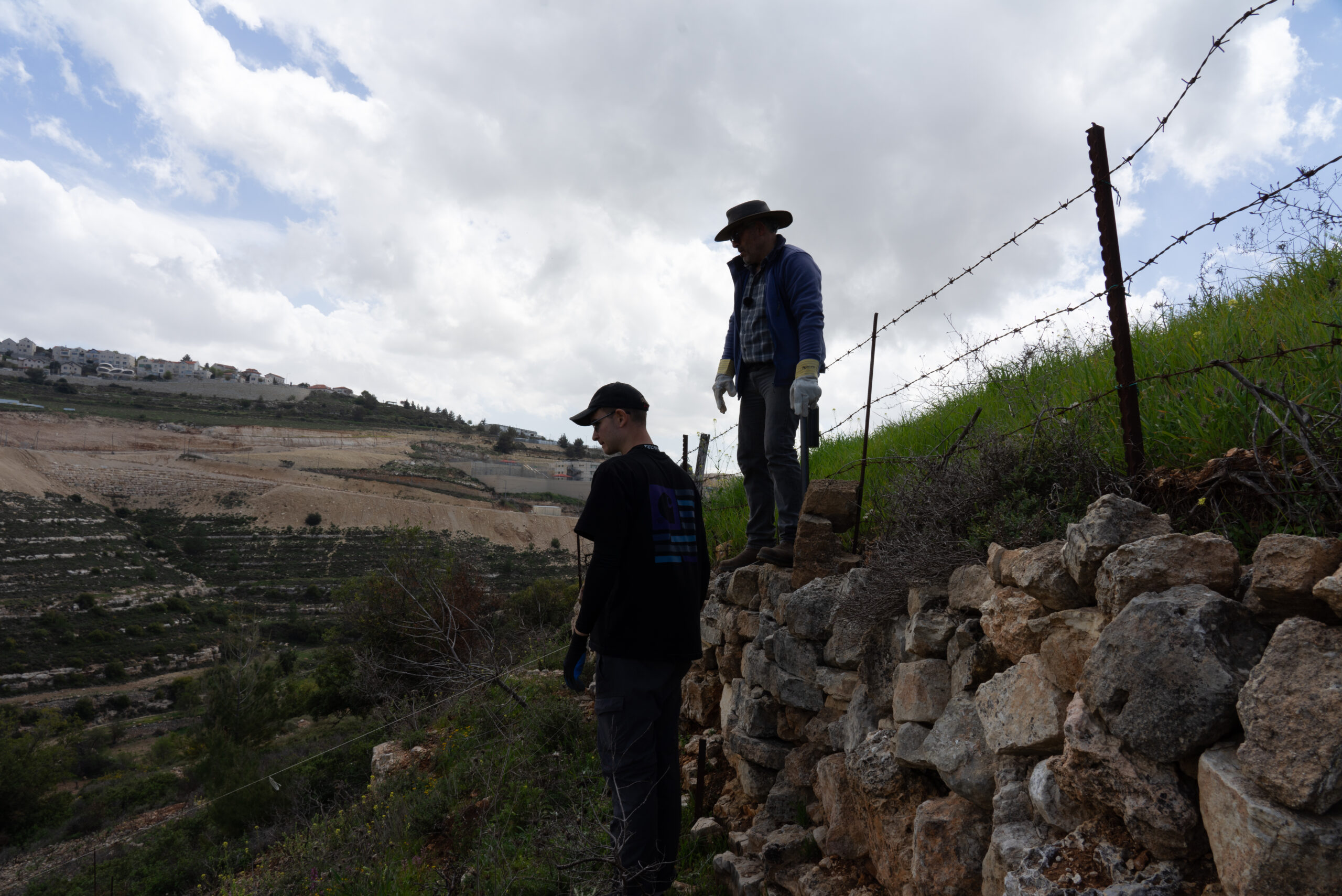
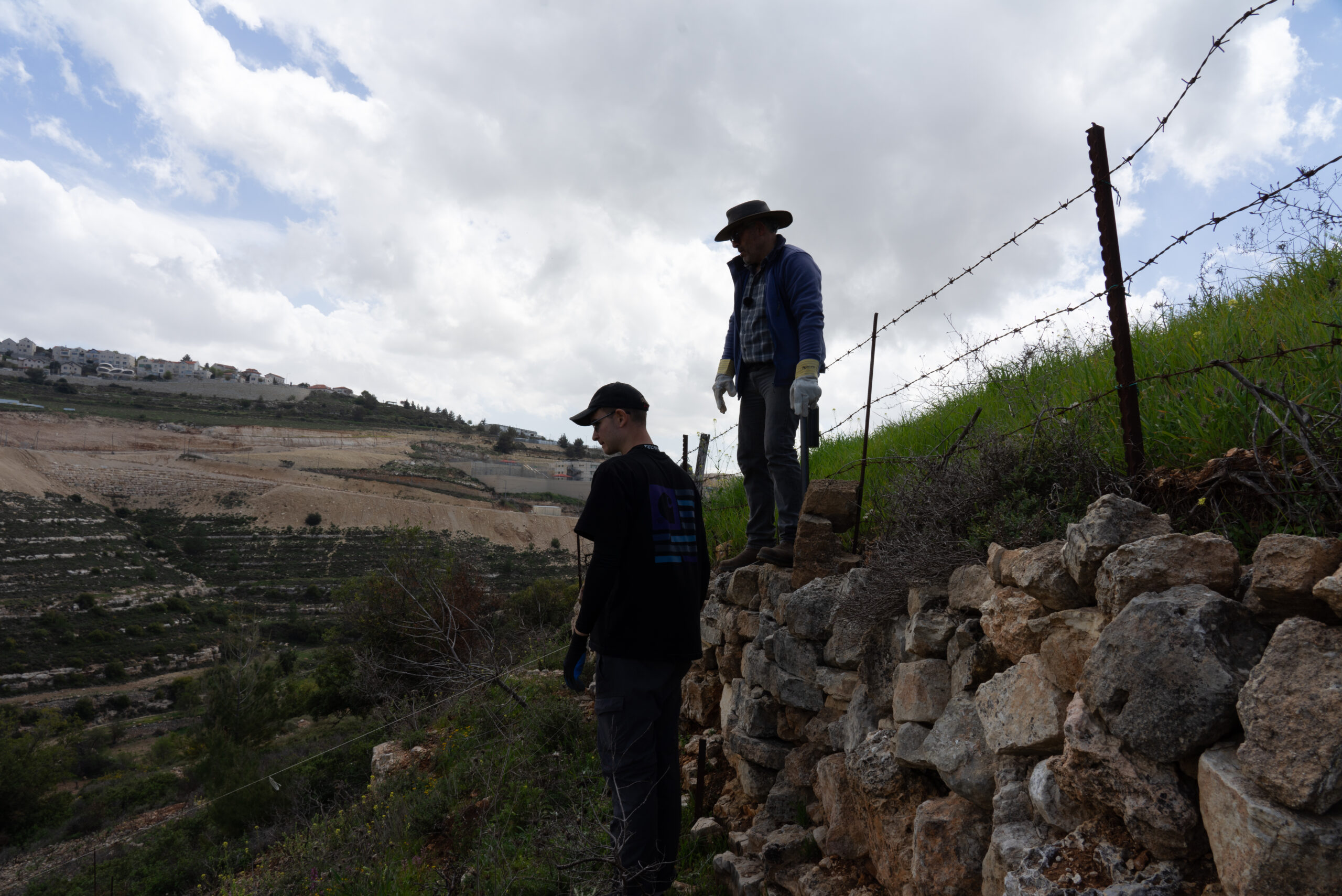
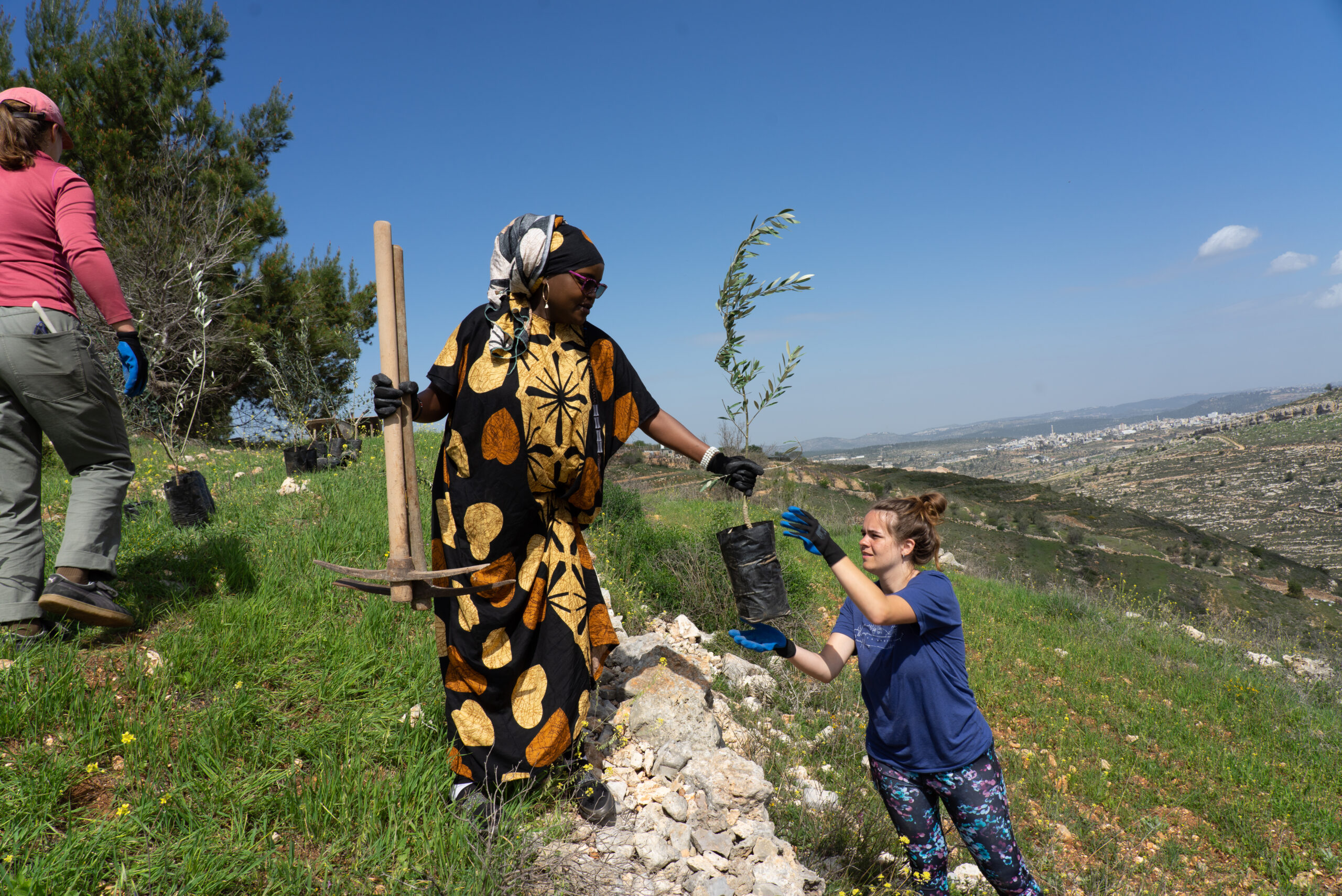
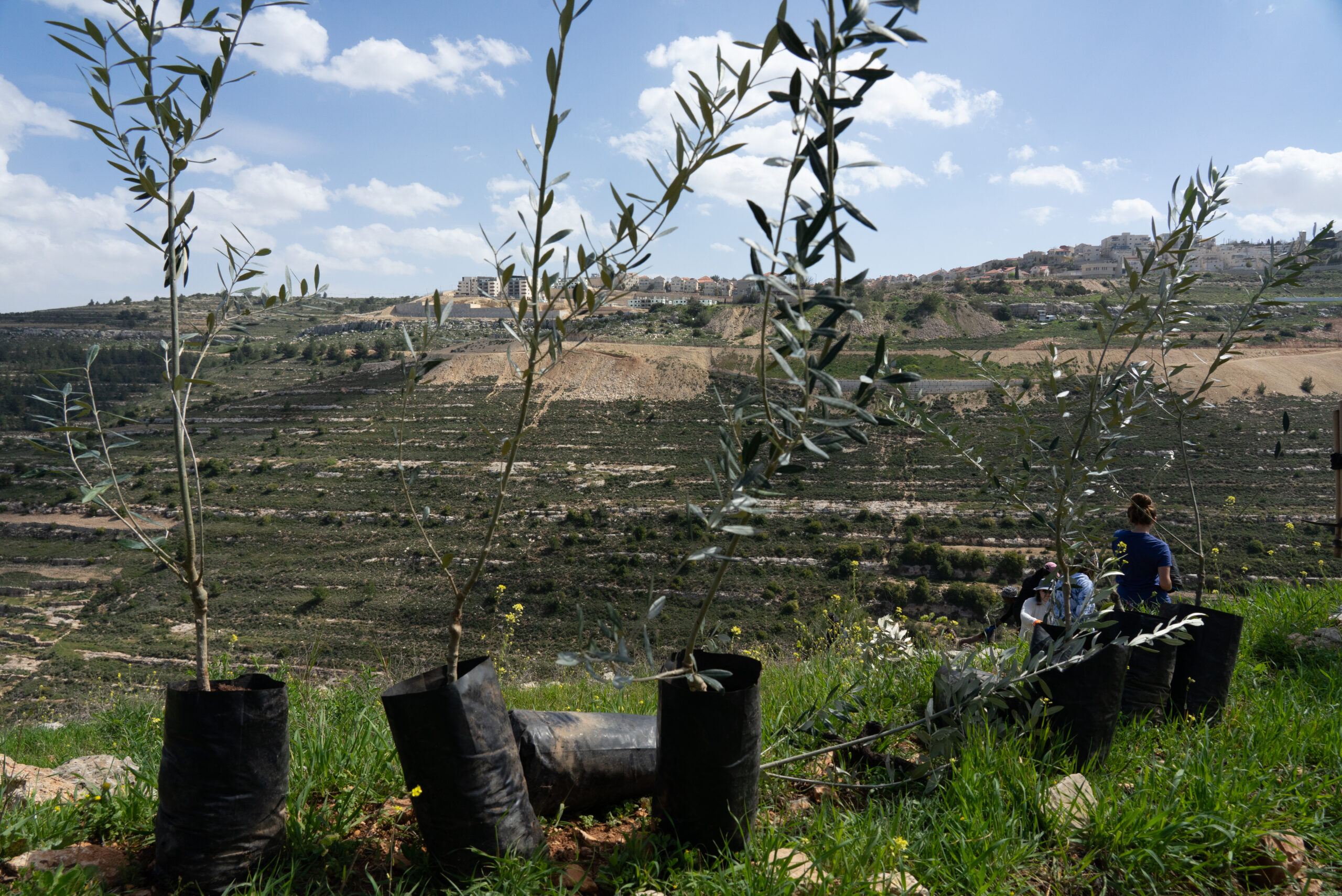
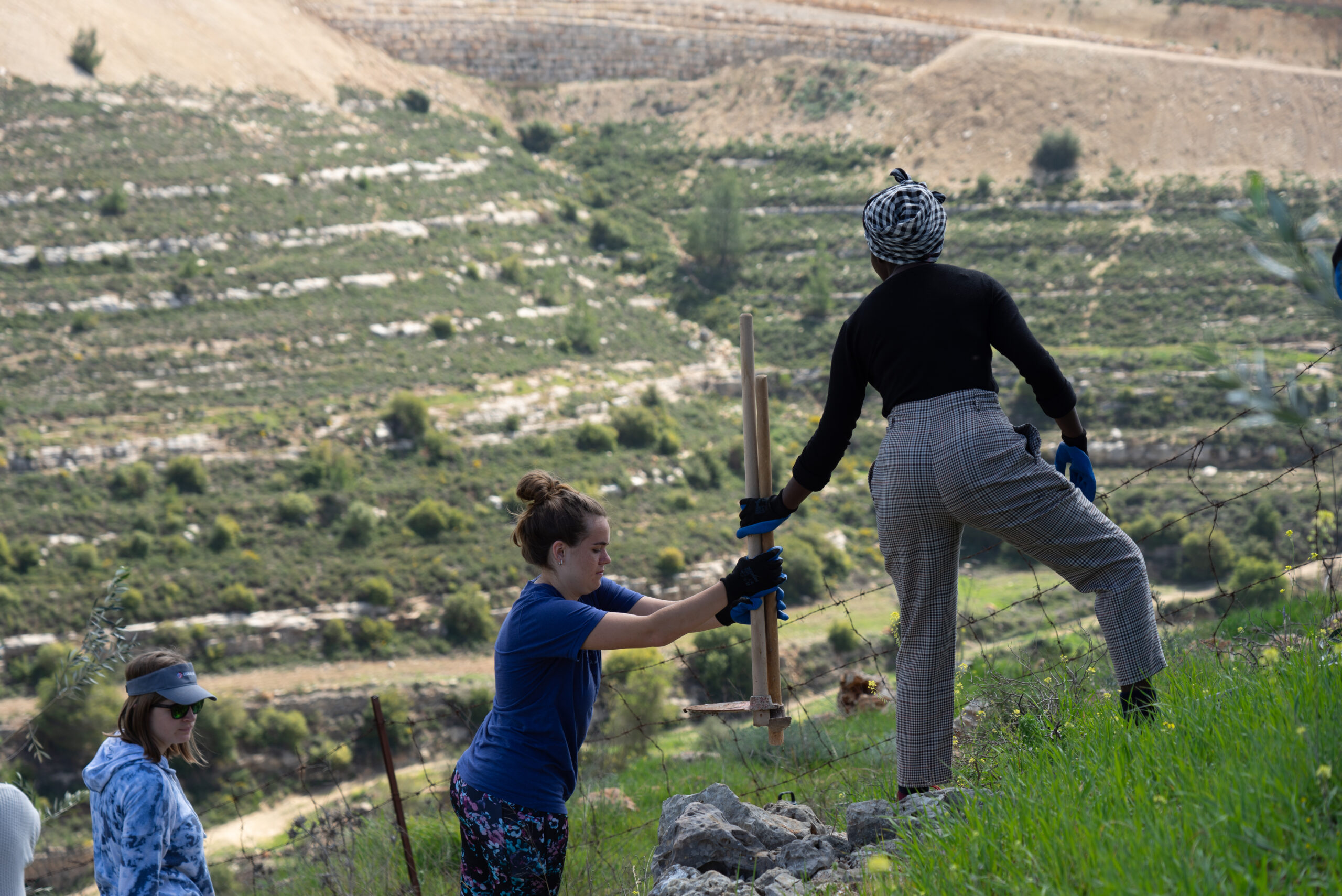
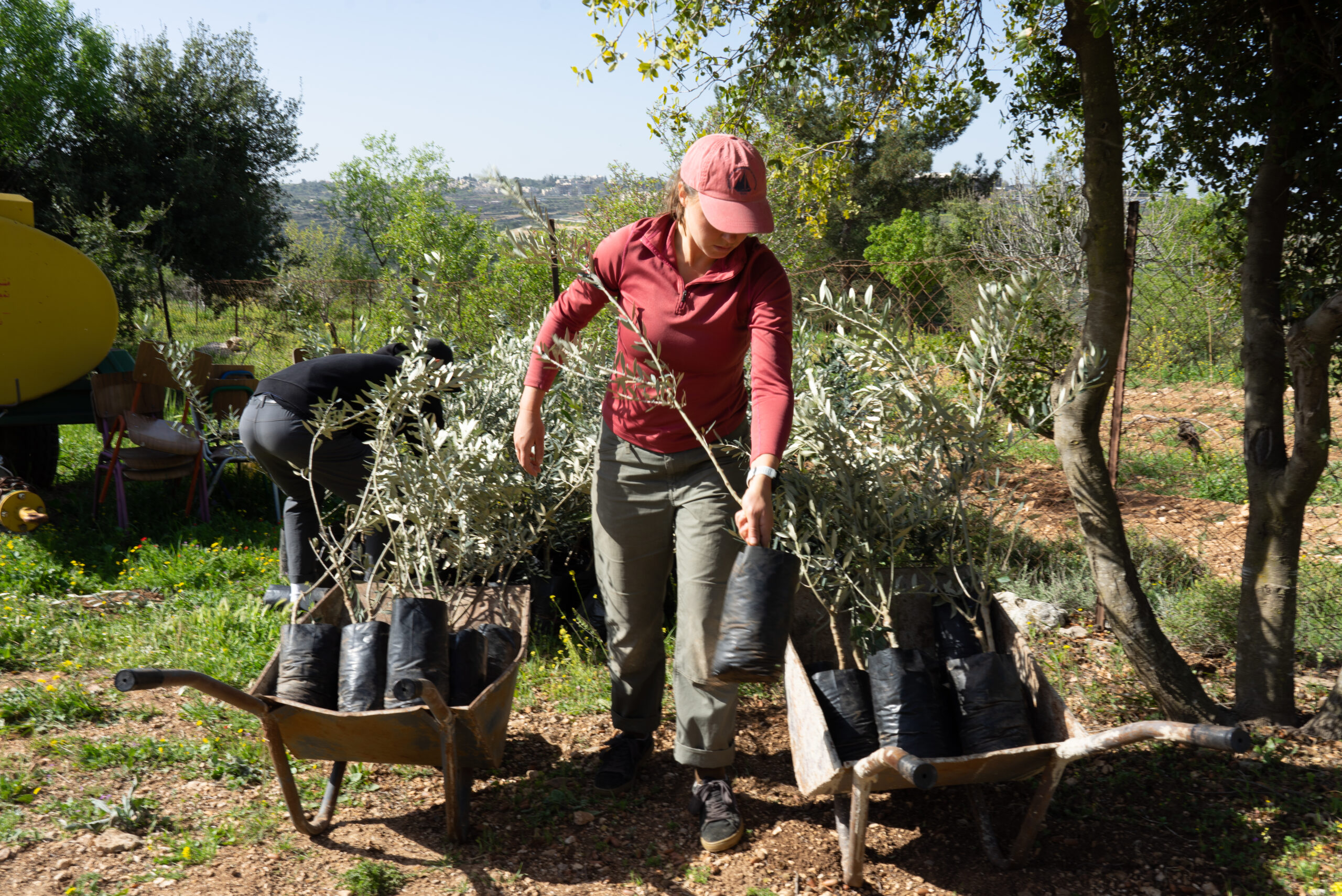
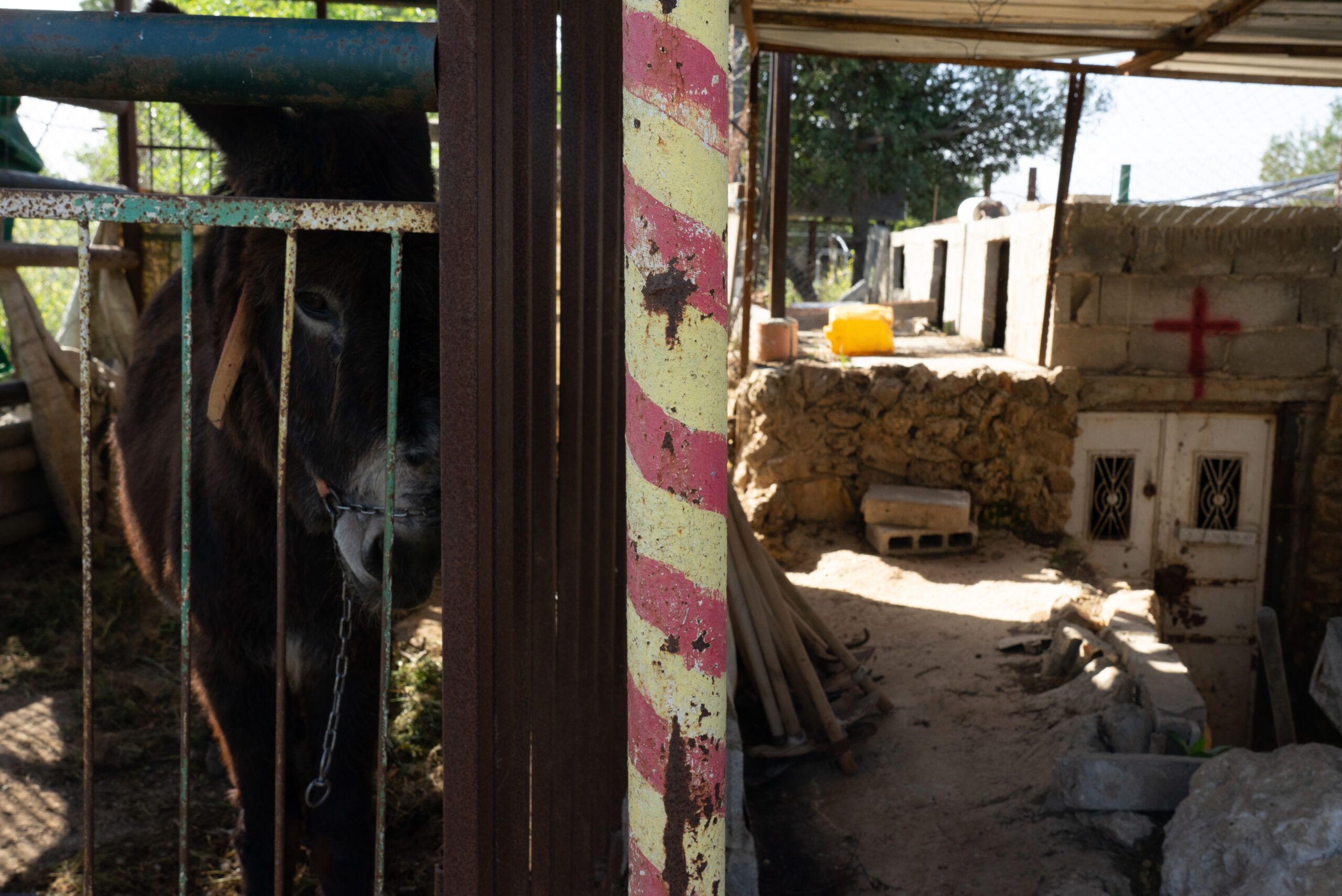
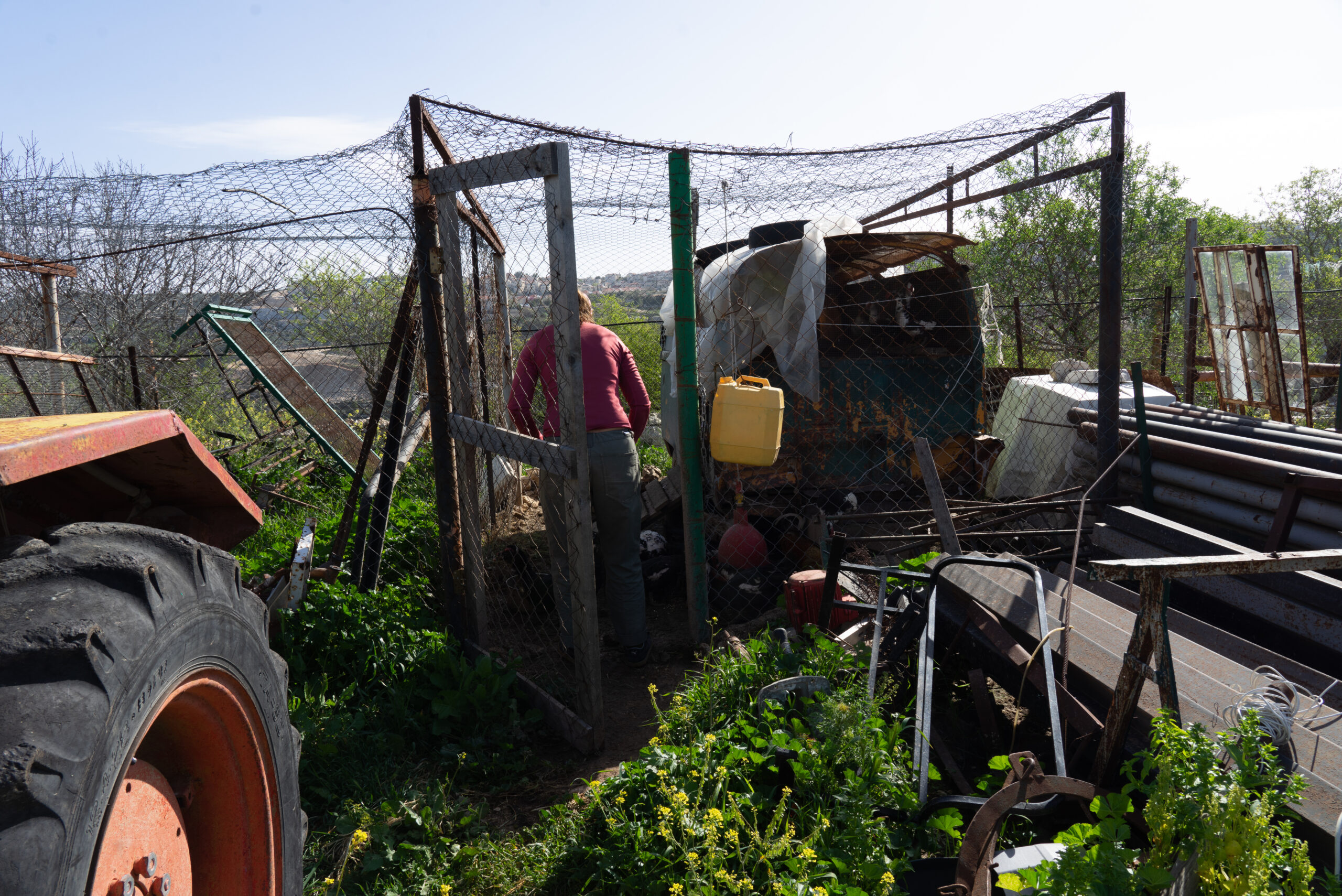
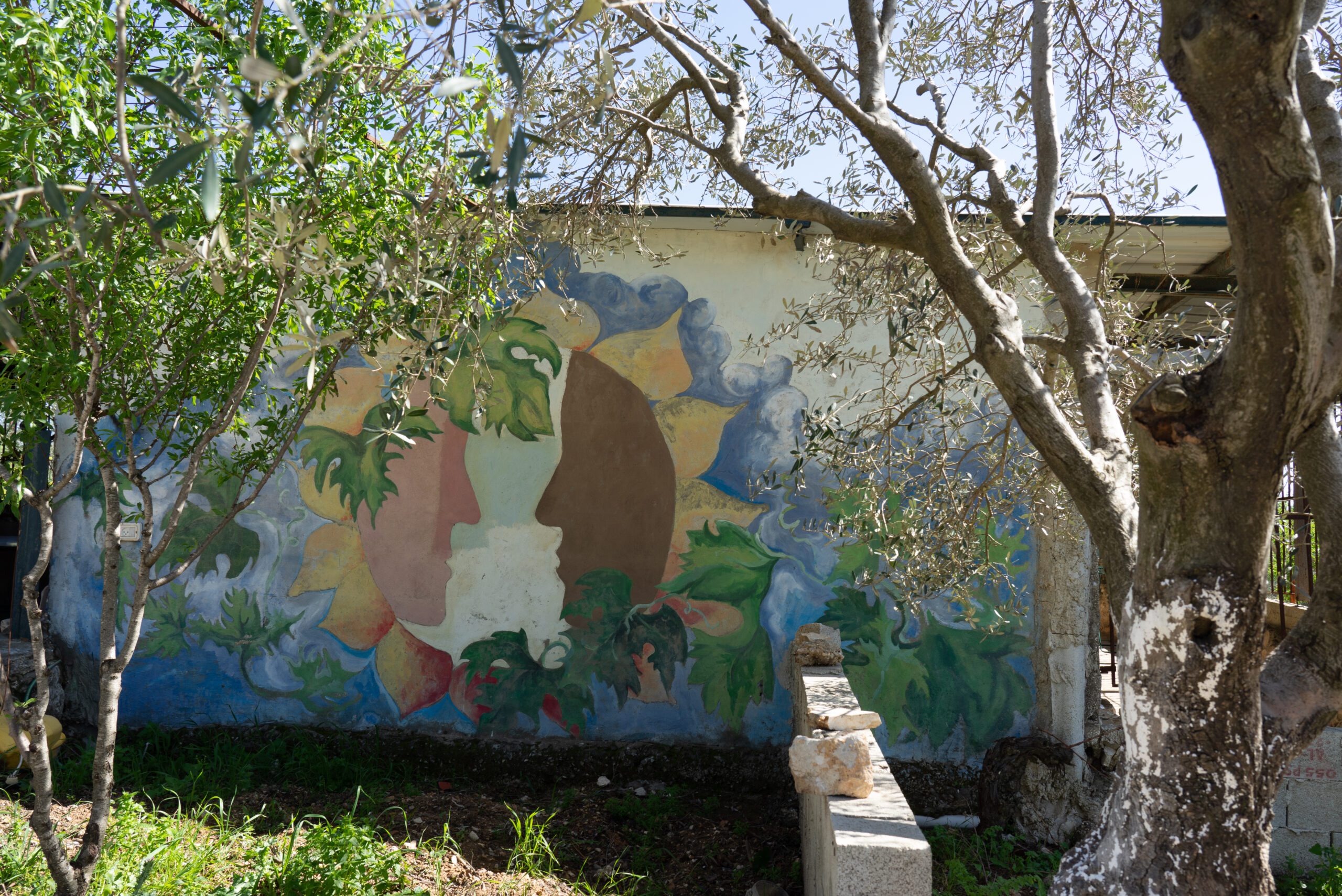
The Upshernish: A Celebratory Haircut Connecting Father to Son, Teacher to Student
In his three years of life, Yechiel Zeev Mergui’s mocha-colored hair had never met a scissor’s blades. The untouched strands — uniform in length, not yet growing peyot, or sidelocks — still told the story of when he first entered the world.
On a Sunday afternoon in Forest Hills, Queens, with the last rays of sun scattering through the gray clouds, the Mergui family and their closest friends, family, and Chabad-Lubavitch community members gathered in the ballroom of Young Israel Synagogue at 7100 Yellowstone Boulevard to celebrate Yechiel’s Upshernish, or “hair-cutting” on his third birthday, according to the Hebrew calendar. With this ceremonial haircut, his peyot would now be visibly distinct from the rest of his hair.
Peyot represent maturing of a Jewish male’s religious education — similar to fruits growing on a tree. Just like a tree is bare of fruits in its first three years, so too is a Jewish child who has not yet begun their formal education. TheTorah compares man to a tree, often comparing trees to Jewish education. Yechiel’s mother designed the centerpieces of each table to resemble a tree on top of emerald tablecloths where white plates adorned with golden accents were neatly placed at each seat– emerald and gold, the two prominent colors splashed throughout the room’s decor.
Greetings of “Shalom” and “Mazel Tov” echo throughout the room as guests begin to stream into the ballroom to enjoy each other’s company and await the coming-of-age ritual that so many Jewish boys have observed. The celebration has all the trappings of any young child’s dream birthday party; a coloring station, children running all around, and a table filled with sweets.
Before the Upshernish began, the men joined in their daily afternoon prayer. Promptly, after the prayer concluded, the guests began to fill their plates with fresh bread, pita, hummus, pasta, salmon— a decadent spread of choices for those lining the buffet. As stomachs began to fill over the course of socializing, and trips for seconds became less frequent, the event began with a blessing.
A long table sat facing the guests where Yechiel’s father, Rabbi Mergui, and grandfather sat. His mother gathered her son and placed him in a chair behind the table.
Rabbi Mergui’s parents traveled from France to witness this ceremony. Now that Yechiel had entered his fourth year, like a tree, his fruit was ready to be collected. Each strand cut is a collection of these fruits.
First to cut his hair was his grandfather. While Rabbi Mergui held the piece, his own father slowly cut the first strand from the back of his son’s head. There was nothing hurried in his movement; every second seemed to be filled with intention. Rabbi Mergui cut the next piece from Yechiel’s head. For a moment, the line between grandfather and grandson, father and son, Rabbi and student seemed to blur.
“My father is a father, so he has the first honor to cut,” the Rabbi later said. “After that — myself.”
Family and friends were called up one by one to cut Yechiel’s hair, as the boy tended to his piece of chocolate cake.
Rabbi Mergui sees this event as a finale to his son's last three years, but also as the end of a cycle for the world. He draws this parallel as Yechiel was born around the time that the coronavirus began.

